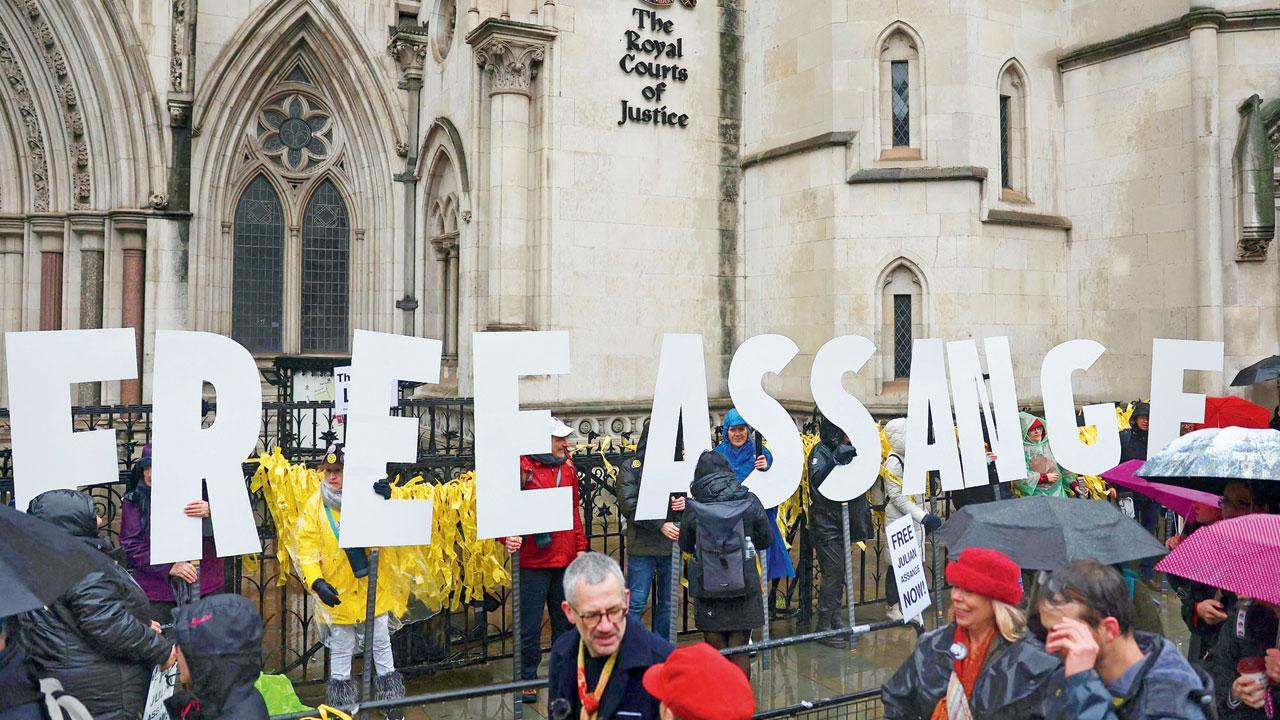The 52-year-old Australian has been indicted on 17 charges of espionage and one charge of computer misuse over his website’s publication of classified US documents almost 15 years ago

Protesters outside of the Royal Courts of Justice, Britain’s High Court, in central London. Pic/AP
Lawyers for the American government are to tell a London court on Wednesday why they think Julian Assange should face espionage charges in the US, in response to a last-ditch bid by his defense to stop the extradition of the WikiLeaks founder. Assange’s lawyers are asking the High Court to grant him a new appeal—his last legal roll of the dice in the long-running legal saga that has kept him in a British high-security prison for the past five years.
The 52-year-old Australian has been indicted on 17 charges of espionage and one charge of computer misuse over his website’s publication of classified US documents almost 15 years ago. American prosecutors say Assange helped US Army intelligence analyst Chelsea Manning steal diplomatic cables and military files that WikiLeaks later published, putting lives at risk.
Attorney James Lewis said Assange’s actions “threatened damage to the strategic and national security interests of the United States” and put individuals named in the documents—including Iraqis and Afghans who had helped US forces—at risk of “serious physical harm”.
Assange’s lawyers argued on the first day of the hearing on Tuesday that American authorities are seeking to punish Assange for WikiLeaks’ “exposure of criminality on the part of the US government on an unprecedented scale,” including torture and killings. Lawyer Edward Fitzgerald said Assange may “suffer a flagrant denial of justice” if he is sent to the US.
This story has been sourced from a third party syndicated feed, agencies. Mid-day accepts no responsibility or liability for its dependability, trustworthiness, reliability and data of the text. Mid-day management/mid-day.com reserves the sole right to alter, delete or remove (without notice) the content in its absolute discretion for any reason whatsoever
 Subscribe today by clicking the link and stay updated with the latest news!" Click here!
Subscribe today by clicking the link and stay updated with the latest news!" Click here!








